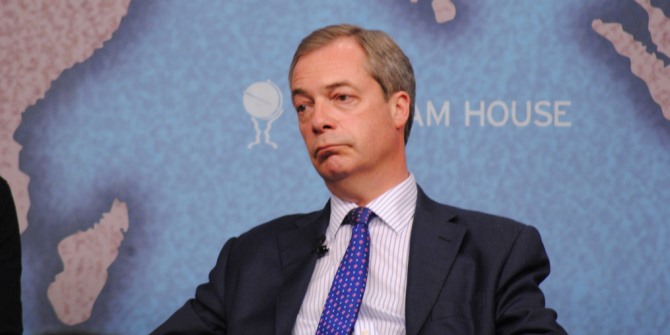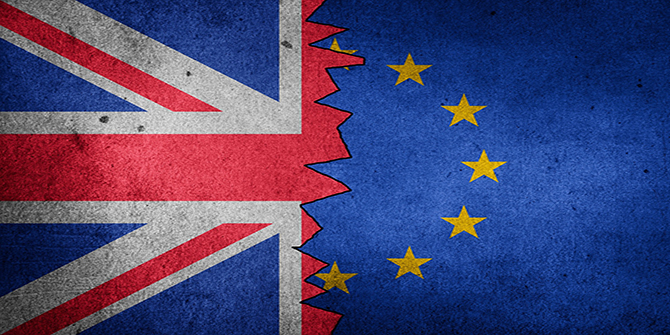
 British voters are famously erratic in how they choose candidates in by-elections. But Labour’s convincing win in Barnsley, poor performances by both the coalition parties, and the persisting push by English voters to support smaller parties, all suggest that the coalition government is already suffering badly from high inflation and unemployment, plus the climate of public sector cuts. Patrick Dunleavy and Chris Gilson show that last week’s “real votes’ taken together with recent opinion polls add up to a dismal picture, for Nick Clegg especially, but also David Cameron.
British voters are famously erratic in how they choose candidates in by-elections. But Labour’s convincing win in Barnsley, poor performances by both the coalition parties, and the persisting push by English voters to support smaller parties, all suggest that the coalition government is already suffering badly from high inflation and unemployment, plus the climate of public sector cuts. Patrick Dunleavy and Chris Gilson show that last week’s “real votes’ taken together with recent opinion polls add up to a dismal picture, for Nick Clegg especially, but also David Cameron.
Recent opinion polls and the convincing Labour victory in the Barnsley by-election last week both suggest that unless things improve for the government, Labour may soon begin to start beating the combined support of the Conservatives and the Liberal Democrats. With inflation levels racing away, apparently uncontrollable by the Bank of England, high and rising unemployment levels, and a daily catalogue of public spending cuts in local news, voters are clearly very unhappy about how things are going.
Across the seven most recent opinion polls, taken since the beginning of March, Labour has a useful lead on 42 per cent, the Conservatives are on 36, the Liberal Democrats on 10 and the smaller parties taken together are on 12 per cent. Add this into the longer term opinion poll picture since a year ago, and it is clear that the Liberal democrat’s slump continues and shows no signs of abating, while the Tories have long since ceased to be in close contention with Labour under an increasingly sure-footed Ed Miliband.

Looking at the changes in vote share in the Barnsley by-election, most media attention has fastened on relatively unimportant things, such as the Liberal democrats coming sixth in the polls behind the UKIP and the British National party, and losing their deposit. Looking a bit deeper suggests that the coalition as a whole is in trouble on two fronts.
First there was a huge decline in the coalition parties combined share of the votes, from 35 per cent in the May 2010 general election, to just 12.5 per cent now – that is, a loss of more than three voters in every five. The Liberal Democrats lost three quarters of their support and the Conservatives more than half. There is little support here for the Liberal Democrat hope that somehow they will cling on to more votes than their national poll rating – quite the reverse, since by-elections have previously been their speciality.
Second, parties on the right of the Tories took nearly a fifth of the votes, even with a considerable slump in BNP support, so that the Conservatives continue to face significant challenges from UKIP and the BNP. Even with the collapse of Liberal Democrat support in Barnsley, the Conservative candidate completely failed to be any clear magnet for anti-Labour voting.
Table: The elections in Barnsley, May 2010 and March 2011
| Party | % votes general election | % votes by-election | Change |
| Labour | 47.3 | 60.8 | +13.5 |
| Liberal Democrats | 17.3 | 4.2 | -13.1 |
| Conservative | 17.3 | 8.3 | -9 |
| BNP | 8.9 | 6 | -2.9 |
| UKIP | 4.7 | 12.2 | +7.5 |
| Remaining candidates | 4.5 | 8.5 | +4 |
| Total | 100% | 100% |
This is a second very solid by-election result for Labour under Ed Miliband, although he has not been immune from criticism. Peter Mandelson gave a soft critique of his leadership, saying:
I just think that sometimes he’s a bit too quick to criticize his own side and the last Labour government…He’s so quick to say he’s not New Labour, he’s not Tony Blair and the rest. Well, it’s fine to be something different but you’ve also got to make clear what that something else is, and I don’t think he’s done so yet.
The next hurdle for Miliband, which might at last buy him more respect from political allies, is to try to push the Labour poll ratings above those of the two coalition parties taken together. This would begin to remove the worry that Tory-Lib Dem tactical voting could still hurt Labour’s chances in many constituencies. For either of the big two parties getting anywhere near 45 per cent in modern British politics, with multiple parties in contention, is very difficult. LSE’s seats projections already give Labour a possible majority of around 70 in an immediate general election (on unchanged boundaries). Getting a poll rating to beat the coalition parties taken together would strengthen Labour’s position further. On current showing, it might not be far off.
Please read our comments policy before commenting.








1 Comments